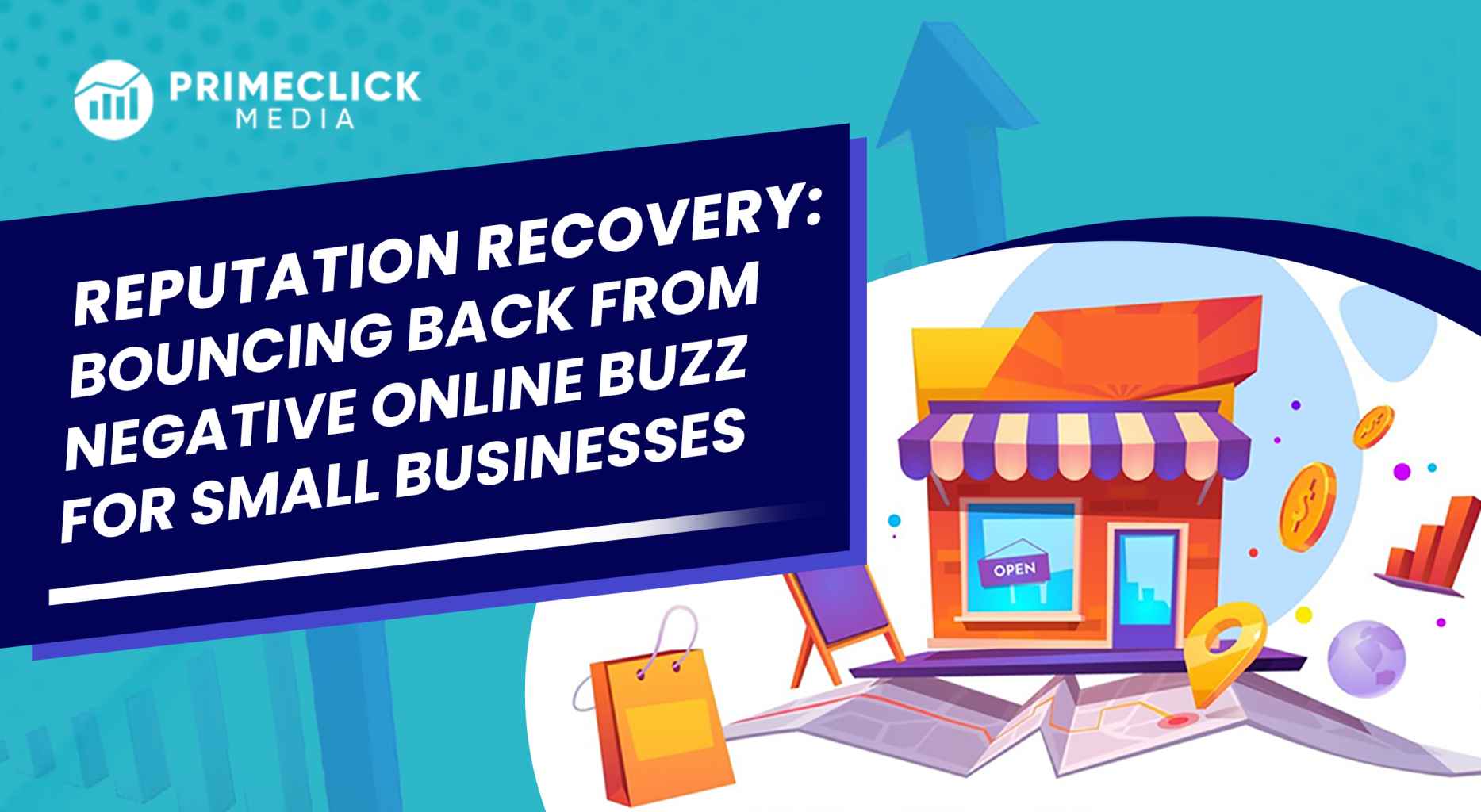Small businesses and SMEs are exposed to damaging online buzz that can potentially harm their well-established credibility. However, every setback presents the chance for a remarkable recovery. This article addresses the strategies and tactics that small businesses can employ to bounce back from negative online buzz and reclaim their brand image.
The impact of negative online buzz on businesses and SMEs
When negative information circulates about a business, it significantly affects the perception of customers and potential customers. Here’s a closer look at the impacts negative online buzz can have on your business:
- Brand Perception
Online buzz shapes how your brand is perceived. Negative sentiment can overshadow positive aspects of your business, hence creating an image that may not accurately reflect your values or the quality of your products or services.
- Erosion of Trust
Negative reviews, comments, or news can erode the trust that customers have in your business. Trust is a fundamental factor in customer decision-making, and once compromised, rebuilding it becomes a formidable challenge.
Consider the survey conducted by TrustPilot, revealing that 89% of consumers claim online reviews influence their buying decisions. When negative reviews infiltrate, trust crumbles.
- Customer Acquisition Hurdles
Potential customers often research online before making purchasing decisions. Negative online buzz can act as a deterrent, leading to lost opportunities as potential customers choose competitors with a more positive digital presence.
A study by BrightLocal found that 86% of consumers hesitate to purchase from a business with negative reviews. This highlights the tangible impact on customer acquisition.
- Impact on Digital Ads
Negative online buzz can directly impact the effectiveness of your digital advertising efforts. Ads may receive lower engagement, click-through rates may decrease, and the cost of acquiring customers through paid campaigns may rise, all contributing to a less efficient and more costly advertising strategy.
- Revenue Consequences
Ultimately, the most significant impact is on revenue. A negative online reputation can directly correlate with a decline in sales and revenue, making it imperative for your business to address and overcome negative online buzz as soon as possible.
- Room for Improvement
In some scenarios, negative reviews can offer valuable insights for improvement. They highlight areas of weakness, giving you an opportunity to address and enhance your products, services, or customer experiences, ultimately contributing to positive change and growth.
Steps to bounce back from negative online buzz
Recovering from negative online buzz requires a strategic approach. If you handle it well, you can reduce the bad effects and maybe even turn a social media disaster into something good. Here are steps your business can take to rebuild a positive online reputation:
- Respond Quickly
If your business encounters a Public Relations crisis, it is crucial to promptly take action. It is advisable to be well-prepared, and equipped with a strategy to inform your customers or clients, monitor advancements, and sincerely consider their feedback.
Consider the United Airlines incident where a prompt response mitigated a major fallout. The incident occurred on a Sunday, and by Monday afternoon, United Airlines CEO Oscar Munoz had issued an apologetic statement. This leads to the next step.
2. Apologize and Take Responsibility
Show sincerity in offering an apology and assuming accountability. While both current and prospective clients strive for perfection, they also value humane responses. Reflect on your errors, acknowledge them, and proactively rectify the situation.
In the case of Domino’s Pizza when a video surfaced showing unsanitary food handling, Domino’s responded with a public apology, demonstrating accountability and commitment to improvement.
- Learn and Improve
Use negative feedback as an opportunity to know what and where to improve. Identify recurring issues in customer complaints and address them. This will help your business bounce back from the negative and also build a good online reputation.
When Starbucks was accused of racial profiling, they took it as an opportunity to close their stores and provide training to address racial bias. Turning criticism into an opportunity for improvement not only addresses immediate issues but sets the stage for long-term positive growth.
- Encourage Positive Reviews
Encourage satisfied customers to share positive experiences online. This will help balance the negative feedback and showcase the positive aspects of your business.
A good example of a business that encouraged positive reviews is Airbnb. Airbnb has a review system where hosts and guests rate each other, fostering transparency and encouraging positive interactions. Positive reviews act as a counterbalance to negativity, influencing the perception of potential customers.
Also Read: 4 Ways To Improve Trust On Your Landing Page
- Highlight Positive Stories on Social Media
Share positive stories, testimonials, and case studies about your business on your social media channel. This will also counterbalance negative buzz and showcase the strengths of your products or services.
Coca-Cola often features uplifting and heartwarming stories on its social media platforms. From community engagement projects to highlighting positive social impact, Coca-Cola’s online presence goes beyond promoting beverages, contributing to a positive brand perception.
Proactive strategies for maintaining a positive online reputation
Creating a good online reputation takes time. Here are strategic measures your small business can take to maintain a positive online reputation:
- Deliver Exceptional Customer Service
Exceptional customer service is the foundation of a positive reputation. Train your staff to prioritize customer satisfaction, address concerns effectively, and go the extra mile to exceed expectations.
- Actively Engage on Social Media
Regularly engage with your audience on social media platforms. Respond to comments, share updates, and actively participate in conversations. Positive engagement contributes to a favourable online perception.
- Showcase Testimonials and Positive Feedback
Display positive testimonials and reviews on your website and marketing channels. Positive stories from satisfied customers are a good way to maintain a positive reputation.
- Encourage Your Employees
Your employees are ambassadors of your brand. Encourage a positive work environment and provide training on customer service. Satisfied employees are more likely to contribute positively to your online reputation.
- Monitor Online Mentions
A simple way to keep track of what people are saying about your business online is to use a tool for managing your online reputation. These tools are not expensive and give you an overall look at all the places where your business is reviewed. Stay informed about what customers say, both positive and negative, and respond accordingly.
- Don’t Ignore Bad Reviews
Ignoring negative reviews may seem tempting, but doing so can inadvertently convey to customers that their opinions hold no significance. When faced with unfavourable comments, take the time to respond thoughtfully. Avoid generic responses and genuinely seek to understand the customer’s concerns.
Tools and resources for online reputation management
Managing your online reputation requires the right tools and resources. Here is a curated list to empower businesses and SMEs to maintain a positive digital image. These tools can help handle reviews, keep an eye on social media, and immediately inform your customer support team:
- BrandMentions
- Grade.us
- Statusbrew
- Podium
- Reputation.com
- Reputation Resolutions
- Buzzsumo
- Yext
- Soci
- Trustpilot
- NiceJob
- Statusbrew
- Birdeye
Conclusion
Regardless of the size of your business, your online reputation is a delicate yet powerful asset. Addressing concerns quickly, engaging with customers, and showcasing a commitment to improvement not only reduces the impact of negative feedback but also sets the stage for a stronger and more positive online presence. Remember, bouncing back from negative online buzz is not only possible but also an opportunity to boost trust and loyalty among your audience.





